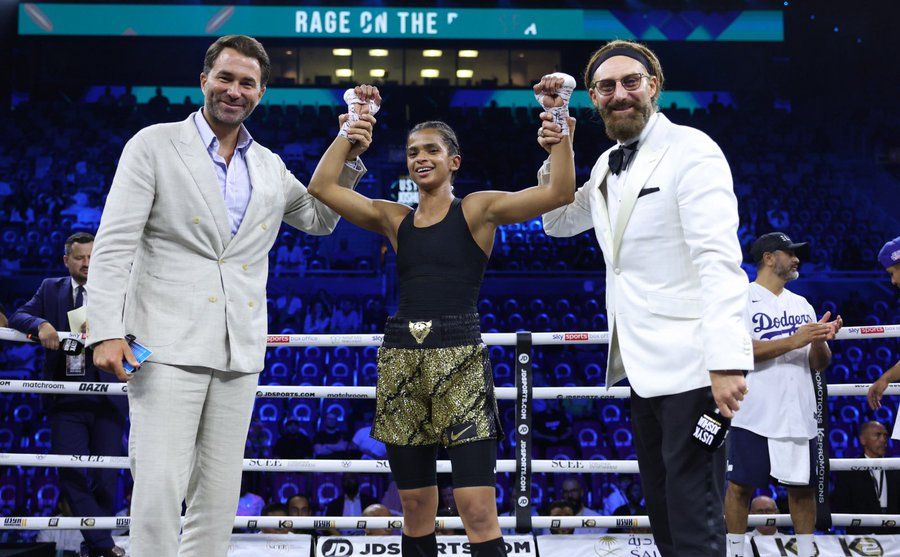Somalia’s Ramala Ali on Saturday made history as she defeated Dominican Republic’s Crystal García Nova in just over one minute in the Anthony Joshua vs Oleksandr Usyk undercard. The boxer was participating in the first women’s fight in Jeddah, Saudi Arabia.
Also read: Badou Jack vs Richard Rivera affected by flies, boxers struggle
Sixty-five seconds is what Ali needed to secure a knockout win her super-bantamweight clash. She attacked upfront and kept her opponent on the backfoot all through. The 32-year-old finished the match with a twisting right-hand shot to the side of the face, knocking the shield out of García Nova’s mouth.
Also read: WNBA playoffs: Chicago Sky posts record rout of New York, forces Game 3
Ali fled a war-torn Somalia, with her family, when she was a child. She settled in England. The boxer took up the sport to lose weight. However, soon, she was a winner of a host of titles including the 2016 Great British Championship. She also became the first ever Somalian – man or woman – to compete in boxing at the Olympics.
Ali’s win on Saturday was historic. However, several fans and Amnesty International UK’s head of priority campaigns Felix Jakens criticised Saudi Arabia’s human rights record.
Also read: Five players who scored most Premier League goals for a single club
“Ramla Ali’s historic fight in Jeddah is clearly a significant personal achievement, but like the Joshua-Usyk match, this is primarily about sportswashing. In recent years, Saudi women brave enough to call for reform have been imprisoned, tortured and silenced. We wish Ramla Ali the best, but there is nothing even remotely progressive about Saudi Arabia’s human rights record,” Jakens said.
To the comment, Ali said that media’s potrayal of the counntry is ‘not quite right’. She defended the country that has been subject to criticism on its restrictions on women.
Also read: Borussia Dortmund face a stunning upset, conceding 3 goals in final minutes
“I feel that the way the media is portraying Saudi Arabia is not quite right. When I came here, I expected to be covered, so when I went to the beach on Sunday, I went covered with leggings and a loose-fitting T-shirt. But everyone was in bikinis. Most women walking down the street don’t wear hijabs either. And the fact that they promote women’s sports here and have admitted two girls here for the first time shows how progressive the country is becoming,”Ramala Ali said.







